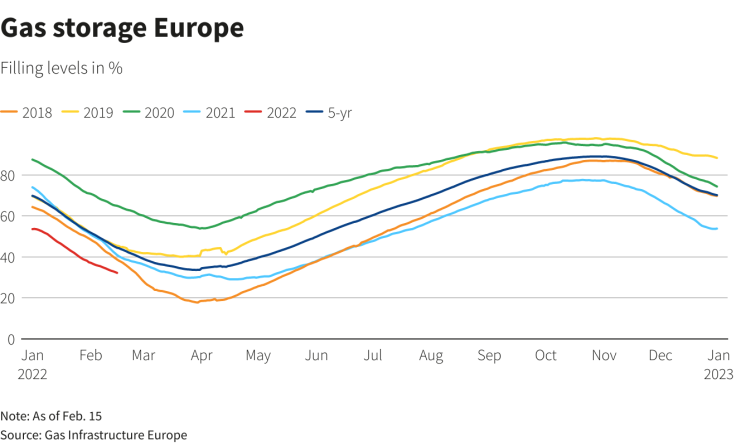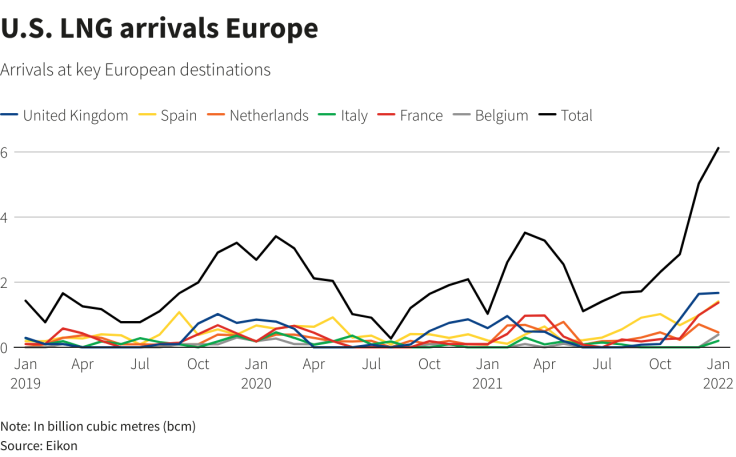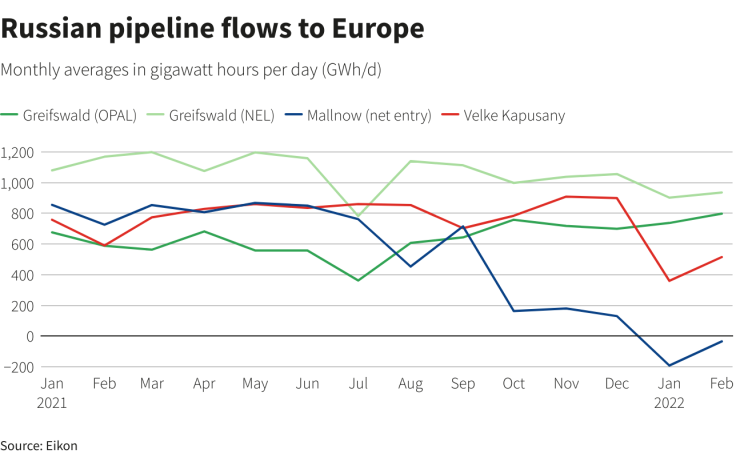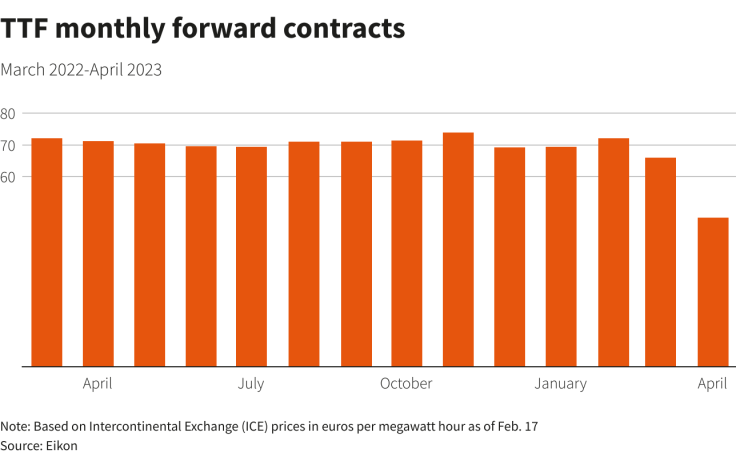European Gas Storage Levels Survive Winter But Summer Refilling Looms
European gas storage levels have fallen less than feared after a mild winter and unprecedented deliveries of liquefied natural gas (LNG), but refilling will be a challenge this summer.
The winter gas season runs from October to March and the summer gas season starts in April. Typically in the summer season wholesale gas prices and demand are lower and more gas goes to storage. However, that did not happen last year.
Global supply was tight because of high Asian demand for LNG and lower-than-normal Russia gas pipeline flows. Wholesale prices were unusually steep for the summer season and limited the injections of gas into storage.
As a result, Europe entered winter with gas storage at its lowest in at least 10 years.
Concern that Russian gas supplies would be disrupted if the country invades Ukraine have pushed prices to record levels. Russia has massed troops near Ukraine's border but repeatedly denied it plans to invade.
"Storage is not expected to end winter at critical levels, and while this gives Europe a bit of a buffer, it does have implications on restocking demand this summer," said Laura Page, senior LNG analyst at data and analytics firm Kpler.
According to data from Rystad Energy, northwest European storage levels are around 10% below 2021 volumes. Europe-wide storage remains at a five-year low of 32.6% full, Gas Infrastructure Europe data showed.
Gas storage Europe -

"Europe received a record 13.15 billion cubic metres of LNG send-out in January after Asia stopped competing for Atlantic basin cargoes," said James Waddell, head of European gas at consultancy Energy Aspects.
LNG receipts in Europe will remain high this year, but are expected to fall from current levels as Asian buyers need to restock, Japan covers nuclear outages with LNG and overall demand in Asia grows, he added.
U.S. LNG arrivals Europe -

However, new LNG capacity coming online this year could provide more supply and producers might postpone LNG infrastructure maintenance outages to take advantage of high prices, said Carlos Torres Diaz, head of power and gas markets at Rystad Energy.
Russia is unlikely to send higher volumes of natural gas, given its reluctance to book additional pipeline capacity to Europe this year, he added.
Russian pipeline flows to Europe -

Another issue is the lack of financial incentive to refill. Putting gas into storage has a cost. That means buyers require lower prices in the summer compared to the following winter to build up stocks, but wholesale prices for gas are uniformally high until next year.
TTF monthly forward contract-

A draft document seen by Reuters on Friday showed the European Union proposes requiring countries to fill natural gas storage ahead of each winter, to help bolster stocks and cope with supply disruptions.
"The Commission proposes a legal requirement for Member States to ensure a minimum level of storage by 30 September every year," the Commission said in a draft of the document, which is subject to change.
The Commission said companies were unlikely to store enough gas based on market incentives alone, since gas prices are expected to remain high at least until the end of this year.
© Copyright Thomson Reuters 2024. All rights reserved.





















